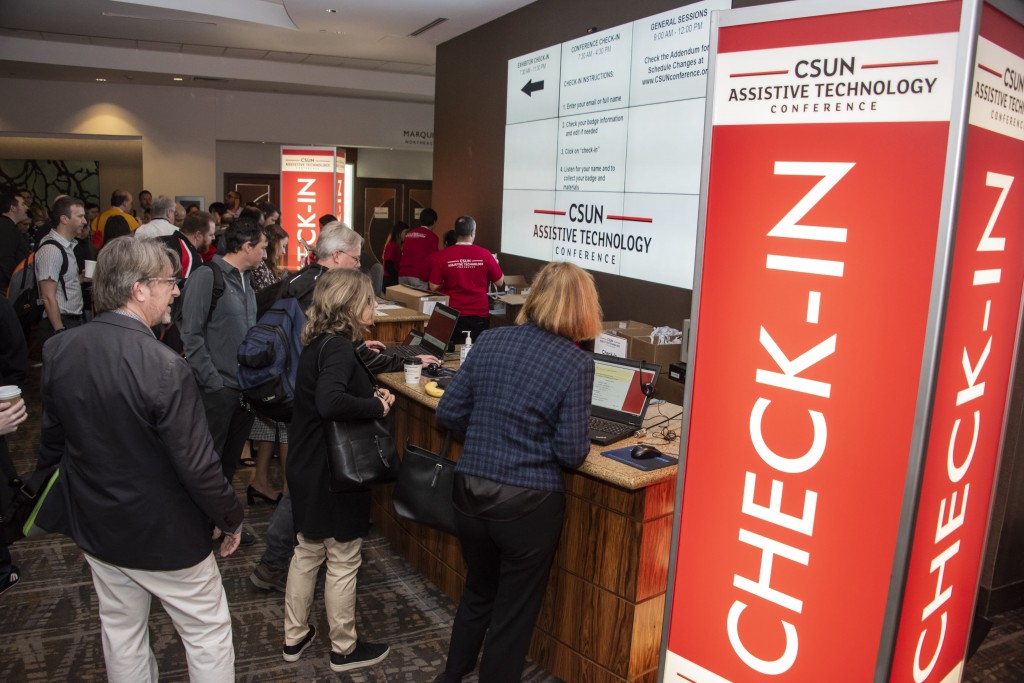CSUN Professors Advise Self-Advocacy for Adults with Disabilities

The 2019 Assistive Technology Conference. Photo by Lee Choo
Individuals with disabilities, especially intellectual and developmental disabilities, are often excluded from or pushed out of conversations about the resources they need, with speakers often treating them as young children and focusing on their caretakers instead of them as individuals, according to California State University, Northridge special education professor Amy Hanreddy.
This tendency can make it difficult for adults with disabilities to know where to start finding resources for themselves, especially when pursuing higher education or careers, Hanreddy said.
“People with intellectual and developmental disabilities are often put in a position of not having control over their own lives,” she said.
Hanreddy advised self-advocacy and encouraged individuals with disabilities to get involved in groups with others who share a common interest in advocacy. Such groups could include online forums or support groups with opportunities for people with disabilities to share their experiences. By getting involved in these groups, people with disabilities will be able to compare experiences and share resources, she said, adding that social media apps such as Facebook are good places to turn to find groups.
Hanreddy also advised adults with disabilities to explore events such as the CSUN Assistive Technology Conference, open to the public and hosted by the Center on Disabilities each March. Due to the pandemic, the 2021 conference will be held virtually for the very first time. The conference brings together professionals and researchers who create accessible technology for physically disabled adults, with many of the vendors being disabled themselves.
CSUN special education professor Beth Lasky pointed out that students with intellectual disabilities assigned to a special education track in public school, from early childhood through high school, aren’t eligible to earn their high school diplomas. Instead, she said, they receive a certificate of completion. Since so many jobs require applicants to have a high school diploma, it can be difficult for these individuals to find jobs later in life, Lasky said.
Lasky started the CSUN Explorers program, a two-year program for students with intellectual and developmental disabilities that is meant to increase their employability and independence. She noted that there currently aren’t any four-year college programs for students with intellectual and developmental disabilities in California.
That sense of empowerment and control over their own lives is key, Hanreddy added.
“For me, as somebody working in the field of education, the most important thing we can do is teach our students from a young age, that they do have a say,” Hanreddy said.
For information on the 2021 CSUN Assistive Technology Conference, visit https://www.csun.edu/cod/conference.

 experience
experience